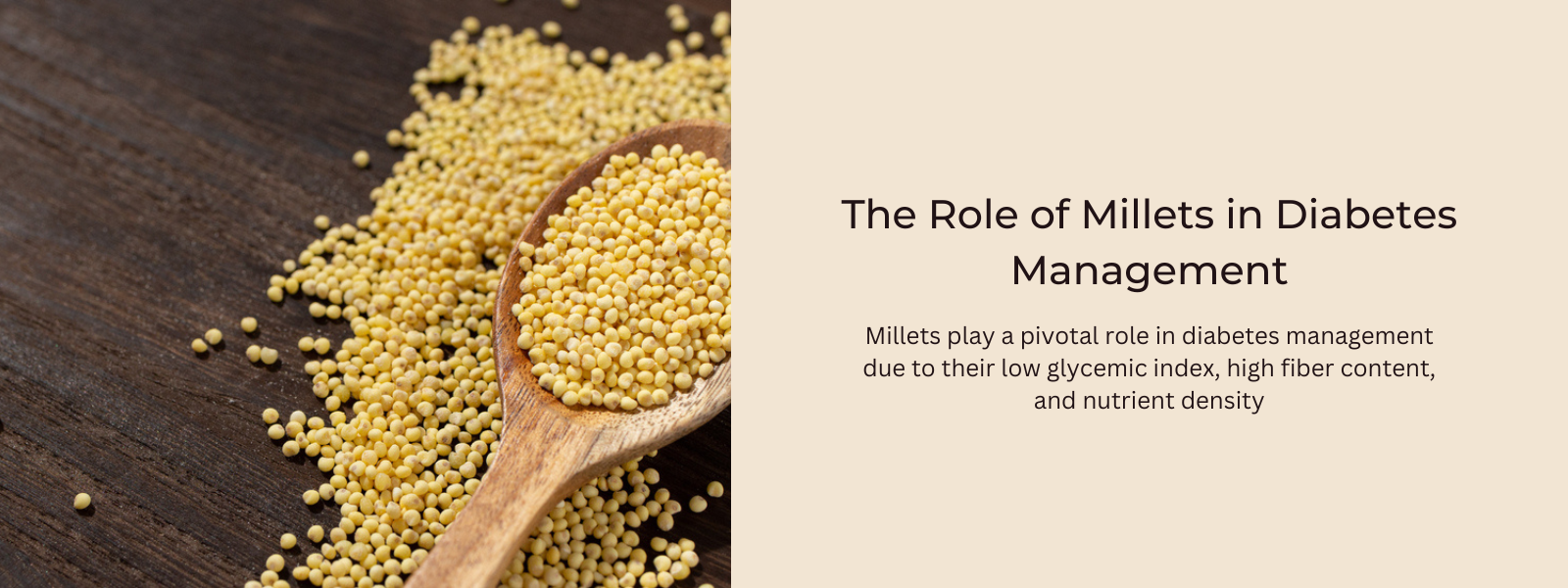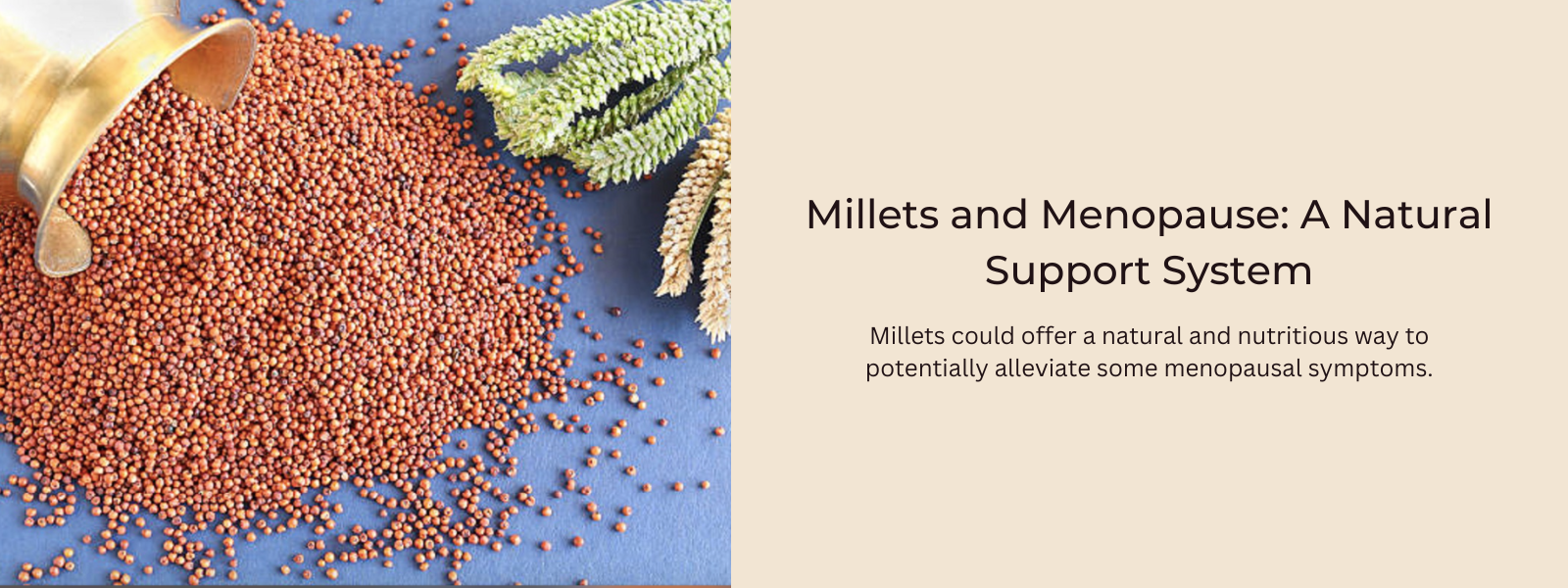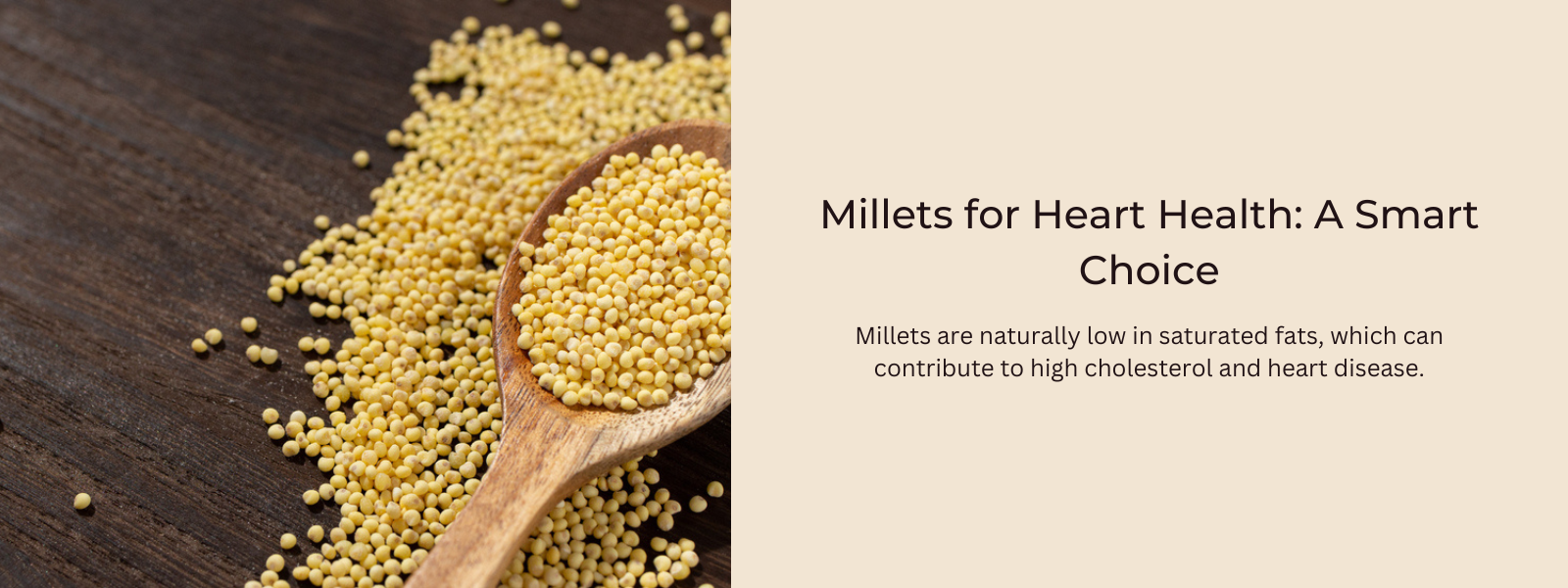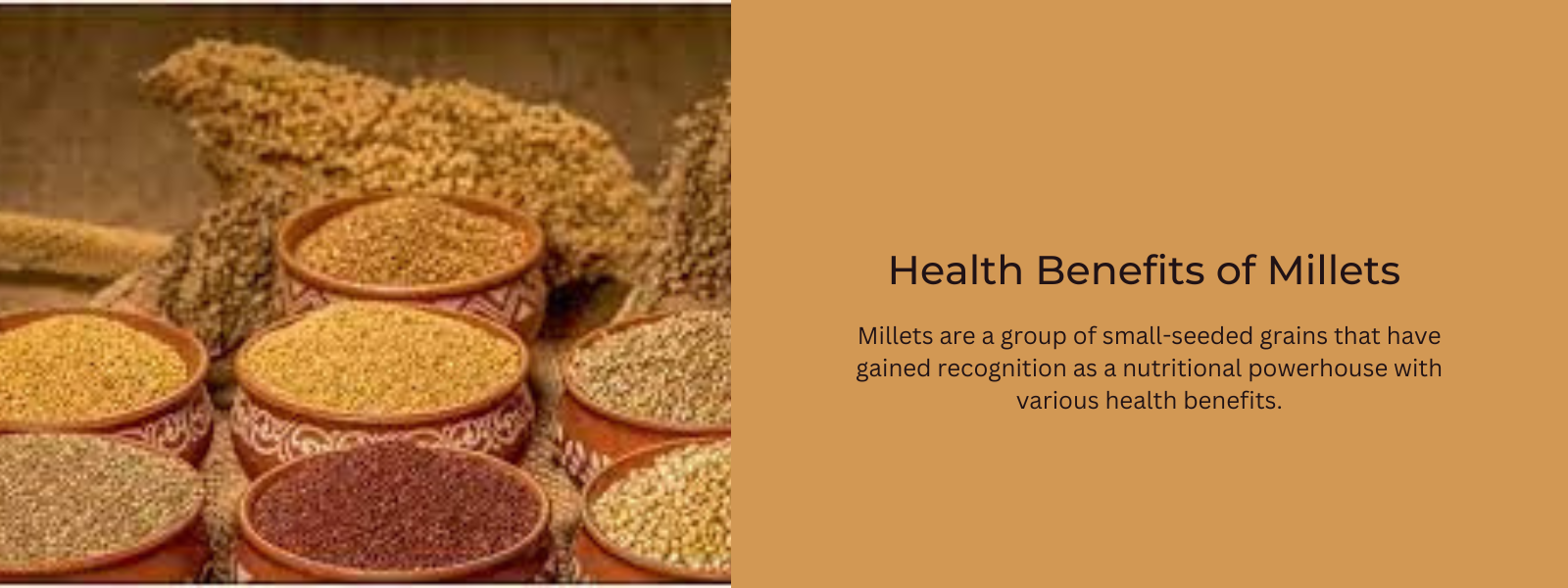Millets potentially aid in stress reduction and bolstering mental well-being due to their nutrient-rich composition. Packed with vital nutrients like magnesium, B vitamins, and antioxidants, millets play a role in promoting relaxation, supporting the nervous system, and combating oxidative stress, which is linked to mental health. Their low glycemic index and complex carbohydrates contribute to stable blood sugar levels, fostering mood stability and potentially reducing stress. Additionally, the high fiber content in millets supports digestive health, aligning with emerging research on the gut-brain connection, suggesting a positive influence on mental health.
Table of Contents
What Are Millets?
Millet refers to a group of small-seeded grains, widely cultivated and consumed globally for their nutritional value. These ancient grains include varieties like sorghum, pearl millet (bajra), finger millet (ragi), foxtail millet, and more. Millets are renowned for their impressive nutrient profile, being rich in essential nutrients like vitamins, minerals (such as magnesium, iron, and phosphorus), antioxidants, and dietary fiber. Their diverse nutrient content offers numerous health benefits, including supporting heart health by managing cholesterol levels, aiding in digestion and weight management due to their high fiber content, potentially reducing the risk of certain chronic diseases like diabetes, and contributing to overall well-being. Additionally, millets are versatile in cooking, easily adaptable to various culinary preparations, and offer a gluten-free alternative for individuals with gluten sensitivities.
Can Millets Help In Stress Reduction and Mental Wellbeing?
Millets can contribute indirectly to stress reduction and mental well-being due to their nutritional composition and potential impact on overall health:
- Nutrient-Rich Profile: Millets contain essential nutrients like magnesium, B vitamins, and antioxidants. Magnesium aids in muscle relaxation and mood regulation, potentially supporting stress reduction. B vitamins are crucial for the nervous system, and antioxidants help combat oxidative stress, which can affect mental health positively.
- Stable Blood Sugar Levels: Millets have a low glycemic index and contain complex carbohydrates that promote steady blood sugar levels. Balanced blood sugar levels are linked to better mood stability and reduced stress.
- Supports Digestive Health: The high fiber content in millets promotes good digestive health. Recent research has highlighted the gut-brain connection, suggesting that a healthy gut may positively influence mental health and stress response.
- Potential for Weight Management: Including millets in the diet may aid in weight management. Maintaining a healthy weight is associated with improved mental well-being and stress management.
Importance Of Stress Reduction & Mental Wellbeing:
Stress reduction and mental well-being are crucial for overall health and quality of life. Here are some key points regarding their importance:
- Physical Health: Chronic stress can negatively impact physical health, contributing to conditions like high blood pressure, heart disease, weakened immune function, digestive issues, and more. Prioritizing stress reduction can lower the risk of these health problems and support overall well-being.
- Mental Health: Mental well-being influences emotional resilience, mood stability, and cognitive functioning. Managing stress levels and fostering mental health can reduce the risk of anxiety disorders, depression, and other mental health conditions.
- Quality of Life: Reduced stress and improved mental well-being can enhance overall quality of life by fostering better relationships, increasing productivity, and promoting a more positive outlook.
- Productivity and Performance: Effective stress management and good mental health contribute to improved focus, creativity, and productivity in both personal and professional spheres.
- Lifestyle Habits: Optimal stress reduction and mental well-being support healthy lifestyle habits such as regular exercise, adequate sleep, balanced nutrition, and effective coping mechanisms.
Conclusion:
Prioritizing stress reduction and nurturing mental well-being is essential for maintaining a balanced and fulfilling life, influencing both physical and emotional health positively. While integrating millets into one's diet can offer these potential benefits, a holistic approach encompassing various lifestyle factors, such as exercise, sleep, stress management techniques, and seeking professional guidance, remains crucial for comprehensive mental well-being.










Leave a comment